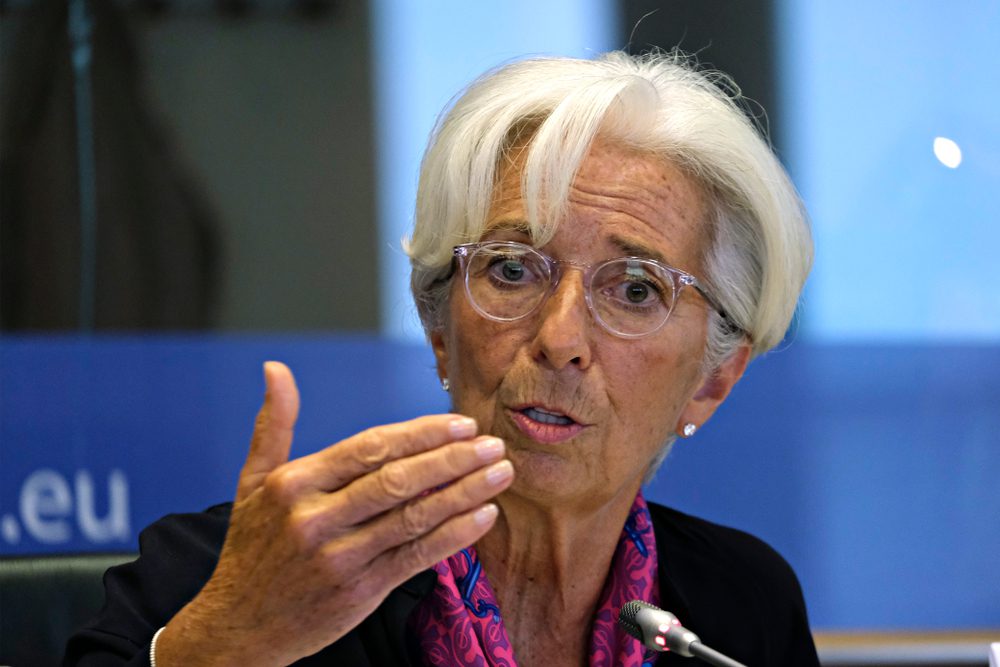“This is not a Big Brother project,” Finance Commissioner Mairead McGuinness told reporters after presenting legislation for a digital euro.
This preemptive attempt to dampen fears manages to sound ominous all the same, especially given the degree to which the Commission has tended to overreach (we may think of the ideological presuppositions encoded into its current policy priorities or the conditions for fund access).
There is a huge potential for Central Bank Digital Currencies (CBDCs) to be used to track and limit citizen behaviour, including that of political dissidents.
The European Central Bank began looking into the possibility of issuing a digital currency in October 2021, publishing three progress reports thereafter. Specifically, it was suggested that commercial banks would handle transactions.
In one of these reports, we read that:
A digital euro would provide a level of privacy equal to that of current private sector digital solutions. Users would need to identify themselves when they start using the digital euro, and intermediaries would perform customer checks during onboarding. Personal and transaction data would only be accessible to intermediaries for the purpose of ensuring compliance with anti-money laundering and combating the financing of terrorism (AML / CFT) requirements and relevant provisions under EU law.
The crucial guarantee being that
User data obtained by intermediaries during the on-boarding process would remain with the respective intermediary and would not be shared with the Eurosystem or with other intermediaries, unless this was required by regulation or necessary to perform digital euro-related tasks.
In addition, member of the ECB executive board Fabio Panetta told the European Parliament’s Economic and Monetary Affairs Committee that “the digital euro would never be programmable money”:
Let me be clear: the digital euro would never be programmable money. The ECB would not set any limitations on where, when, or to whom people can pay with a digital euro … We are also aware of some people’s concerns that a digital euro could harm the confidentiality of their payment data. When it comes to the central bank, we propose that we do not have access to personal data. And it will be for you [the Parliament], as co-legislators, to decide on the balance between privacy and other important public policy objectives like anti-money laundering.

During a ‘prank’ video call in which she thought she was speaking to Ukrainian President Vladimir Zelensky, the President of the ECB, Christine Lagarde, contradicted the above guarantees by defending the idea of control (or monitoring) of even small transactions between citizens using the digital euro:
Now we have in Europe this threshold: above €1,000 you cannot pay cash. If you do, you are on the grey market … if you get caught, you’ll be fined or you can go to jail. The digital euro is going to have a limited amount of control. There will be control … we are considering whether for very small amounts, you know anything that is around €300 or €400, we could have a mechanism where there is zero control, but that could be dangerous. The terrorist attacks on France 10 years ago were entirely financed by those very small anonymous credit cards that you can recharge in total anonymity.
Lagarde’s opinion that even small transactions should be controlled may be compatible with the ECB’s third progress report on a digital euro if we understand “control” as being exerted through so-called “conditional payments.”
On one level, the ECB’s report is at pains to distinguish between “programmable money” and “conditional payments:”
Within the scope of the digital euro project, conditional payments refer to payments that are instructed automatically when predefined conditions are met. Conditional payments are a broad category that includes both optional and value-added services.
In contrast, according to the ECB, “programmable money,” which is excluded from its plans, entails
units of digital euro being used only to buy specific types of goods and/or services, or to buy them only within a certain period/geography. Programmable money contradicts the guiding principles of the digital euro.
Critics may argue, however, that much of what “conditional money” can entail involves programmability.
This is true even if, as the ECB report argues, “supervised intermediaries” are best placed to develop “conditional payment services,” with the role of European-level governance being limited to developing “common scheme standards” via a “rulebook” if the market demands it, as well as providing “functionalities” and “back-end infrastructure.” Indeed, European institutional creep could end up in a mandate that intermediate entities develop specific “conditional payment” functionalities and services.
To the degree that citizens are required to set up only one personal account with which to use digital euros tied to their digital ID, and legislative incentives requiring businesses to use the digital euro are put in place, one can easily imagine a scenario in which economic freedom is quickly eroded. (For a critical overview of these developments see the Youtube channel Coin Bureau’s video on the digital euro.)
As an aside, Sven Larson’s warnings regarding the theoretical danger of “central banks [getting] their hands on crypto currencies” and causing “crypto-driven inflation” apply to CBDCs like the digital euro as well.
